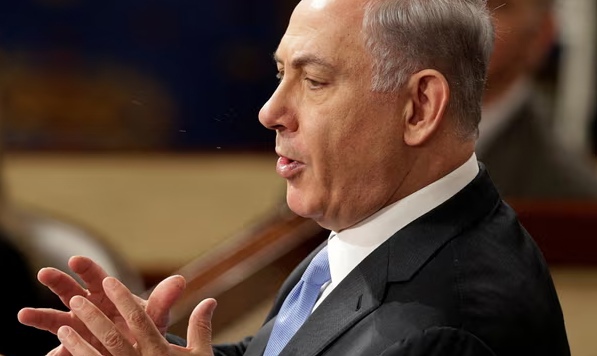Israeli Prime Minister Benjamin Netanyahu has dissolved the cabinet tasked with overseeing the war in the Gaza Strip, Israeli media reported.
The military cabinet was dissolved on Monday local time after the departure of Benny Gantz, a centrist former military chief, earlier this month.
Mr. Gantz, an opposition politician, joined the coalition in the early days of the war, and after his departure it was widely believed that Mr Netanyahu would dissolve the cabinet.
Israeli Prime Minister faced demands from his nationalist-religious coalition partners – Finance Minister Bezalel Smotrich and National Security Minister Itamar Ben-Gvir – to be included in the war cabinet.
Mr. Gantz, Mr. Netanyahu and Defence Minister Yoav Gallant were key members of the cabinet, and the trio made decisions together throughout the war.
Israeli officials, who spoke to the Associated Press on condition of anonymity because they were not authorised to discuss the changes with the media, said Netanyahu would in future hold small forums with some members of his government to discuss sensitive issues. Reuters also reported the dissolution.
Mr. Gantz, a long-time political rival of Mr. Netanyahu, entered the government in a show of unity after the Hamas attack on southern Israel on October 7. He left the government earlier this month, citing frustration with Mr. Netanyahu’s handling of the war.
Mr. Gantz’s departure, while not a direct threat to Mr Netanyahu’s rule, has shaken Israeli politics at a difficult moment. The popular former military commander was seen as a statesman who raised Israel’s profile among its international partners at a time when Israel was most isolated.
Israeli Netanyahu criticised the pause
The Israeli military said it would pause tactical military operations in the southern Gaza Strip on a daily basis to allow aid to flow into the area, where international aid organisations have warned of a growing humanitarian crisis among Palestinian civilians.
On Sunday, Mr. Netanyahu criticised the plans. An Israeli official said:
When the prime minister heard the reports of an 11-hour humanitarian pause in the morning, he turned to his military secretary and made it clear that this was unacceptable to him.
The military clarified that regular operations will continue in Rafah.
